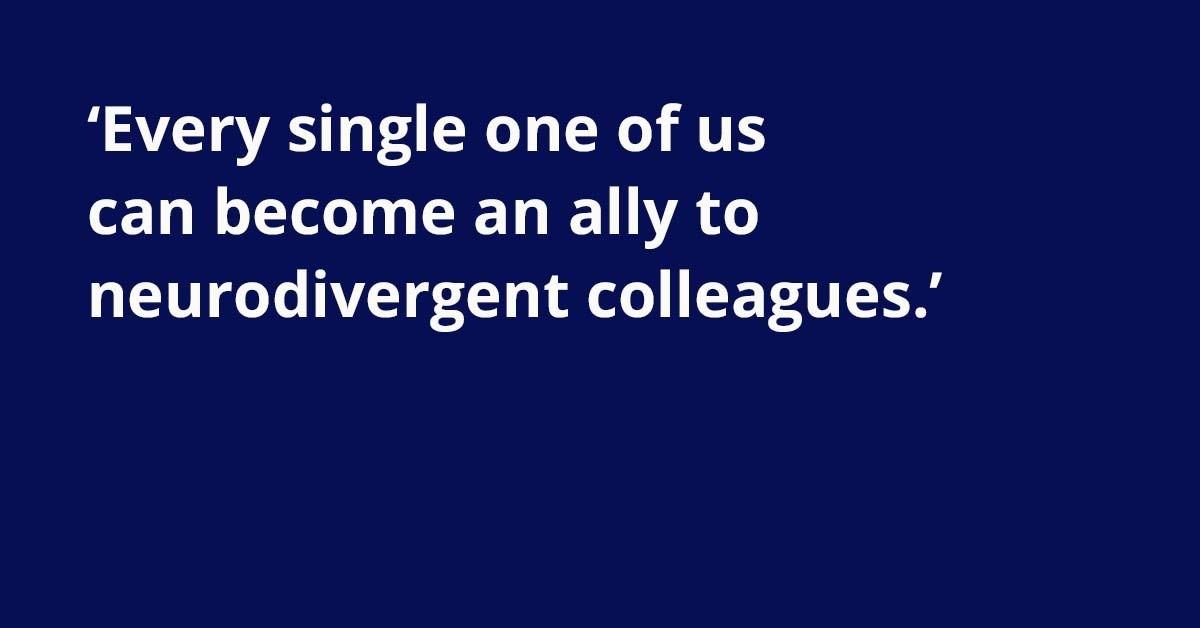See the abilities, not the disability: Neurodiversity in the workplace

Everyone should be treated equally in the workplace, no matter who they are, where they come from or their cognitive differences
An oft-cited study estimates that the unemployment rate among adults with autism spectrum disorder stands at around 75-85%, despite the skills and advantages that such individuals can offer to roles in the tech industry.
But it’s not autism or any other neurodiverse condition that holds individuals back in the workplace, but discrimination itself. Neurodivergence isn’t an illness or a flaw: it simply means differences in cognitive processes.
And without a proper understanding of neurodivergent conditions or support for neurodivergent individuals, companies cannot be home to a completely diverse and inclusive workplace.
Here, we look at the benefits of a neurodiverse workplace, accessing neurodiverse talent, and how to be allies to neurodivergent colleagues.
What are the benefits of a neurodiverse workforce?
Neurodiversity is more common than we think -- it’s estimated that 1 in 7 people are in some way neurodivergent. In fact, autism spectrum disorders -- a diverse group of conditions that affect the way individuals communicate, interact, behave, and learn - affect around 75,000,000 people worldwide.
While it’s impossible to generalize their cognitive abilities, neurodivergent employees often have different abilities that can give your organization a competitive advantage. For example:
- According to research, autistic employees have a greater ability to process information, detect ‘critical’ information, and recognize patterns and irregularities. These are highly sought-after traits in the IT sector.
- JPMorgan Chase runs a program focused on hiring individuals with autism and reports that these employees are 90 to 140% more productive” than “neurotypical” employees and make fewer mistakes.
- Candidates with autism often demonstrate above-average skills including high levels of concentration and attention to detail, a high tolerance for repetitive tasks, and a deep understanding of complex systems and processes.
Neurodivergent employees can help you diversify your business outlook, apply creativity and innovation to challenges, and offer unique ideas and perspectives that benefit the workplace as a whole.
How to be an active ally to neurodivergent colleagues in the workplace
Every single one of us can become an ally to neurodivergent colleagues. For example, consulting neurodivergent colleagues before scheduling meetings can help them feel less overwhelmed while giving them specific instructions and confirming expectations helps them to understand each task and exactly what’s expected of them.
Plus, small details such as recording virtual meetings so that they can replay to confirm the work expected of them, as well as recognizing that small talk and unexpected desk visits might be difficult to deal with are also ways that we can expand our allyship in the workplace.
There are several ways organizations can foster active allyship with neurodivergent colleagues:
- Create communication channels: Slack channels, for example, are helpful for neurodivergent colleagues to share their thoughts and ideas with neurotypical colleagues and create open spaces for communication and ongoing learning.
- Invest in ongoing education: Run regular, professionally-led courses or workshops to help employees and managers understand how to become better allies and how better to represent the needs of neurodivergent individuals.
Keep listening to neurodivergent colleagues: Different individuals will have different experiences and preferences, so it’s important to listen and learn from neurodivergent colleagues.
What are the benefits of a neurodiverse workforce?
Neurodivergent employees make many essential contributions to the workplace that go above higher than average productivity. Providing an inclusive environment for neurodivergent people is a must for companies who are committed to fostering a diverse workplace and that want to obtain a competitive advantage.
Netcentric is committed to tackling workplace bias and fostering a diverse and inclusive workplace where everyone is equally valued and respected for who they are. We’re also always on the lookout for new talent to join our diverse team. Head to our careers page for our latest openings and find your next role in a company that values people from any and all backgrounds.